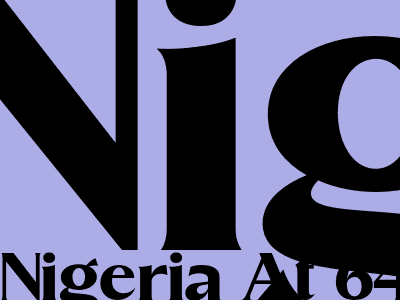
Nigeria at 64: A Comprehensive Overview
Historical Context
Nigeria, the most populous nation in Africa, marked its 64th Independence Day on October 1, 2022. The journey to independence was arduous, marked by British colonialism and the struggle for self-governance. On October 1, 1960, Nigeria emerged as an independent nation, heralding a new era of sovereignty.
Political Landscape
Nigeria operates as a federal republic with a presidential system of government. The current president, Muhammadu Buhari, was elected in 2015 and re-elected in 2019. The National Assembly, the country's legislative body, comprises the Senate and the House of Representatives.
Nigeria is a multi-party democracy with numerous political parties competing for power. The two dominant parties are the All Progressives Congress (APC) and the People's Democratic Party (PDP).
Economic Profile
Nigeria possesses a diverse economy, with vast natural resources, including oil, gas, and solid minerals. The country is the largest oil producer in Africa and a significant player in the global energy market.
Agriculture remains a vital sector, employing a large portion of the population. Major agricultural products include cassava, yams, maize, and cocoa. Nigeria also has a growing manufacturing and services sector.
Social and Cultural Diversity
Nigeria is a melting pot of over 250 ethnic groups, each with its unique language, culture, and traditions. The country is also home to two major religions: Islam and Christianity.
Nigeria has a rich cultural heritage, expressed through its vibrant music, dance, and art forms. Nollywood, the Nigerian film industry, is renowned for its captivating storytelling and has gained global recognition.
Challenges and Opportunities
Nigeria faces a range of challenges, including poverty, inequality, corruption, and security threats. The Boko Haram insurgency in the northeast and banditry in the northwest continue to pose security challenges for the government.
Despite these challenges, Nigeria possesses immense potential for growth and development. The country's young population, abundant natural resources, and vibrant economy offer opportunities for progress.
Conclusion
At 64, Nigeria has made significant strides since independence. With its diverse population, rich cultural heritage, and vast economic potential, the nation stands poised to overcome its challenges and seize opportunities for a prosperous future.